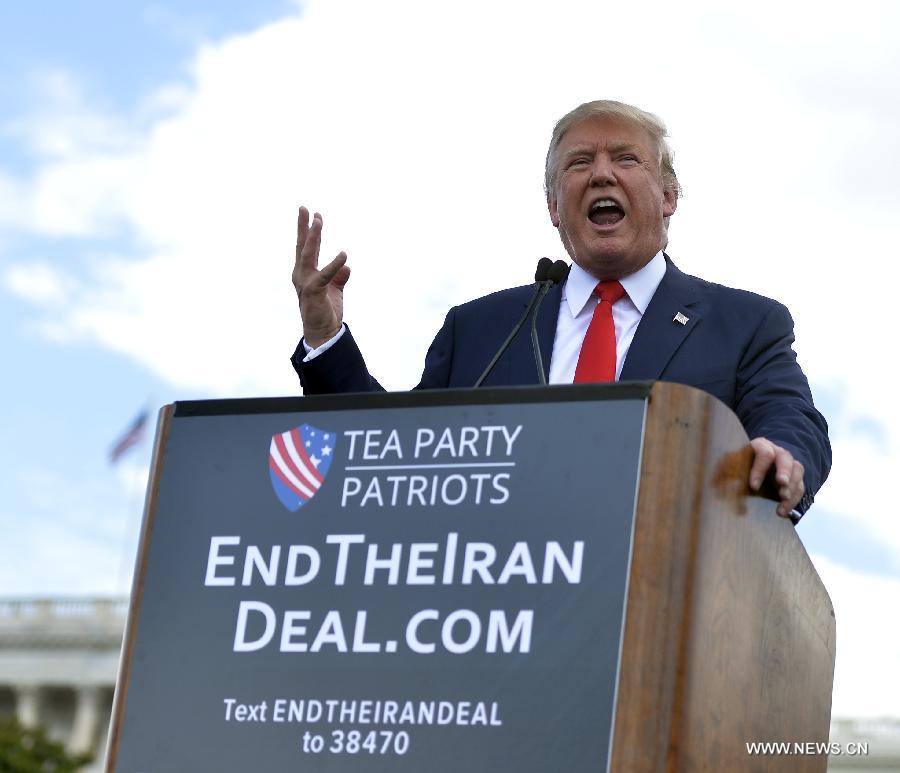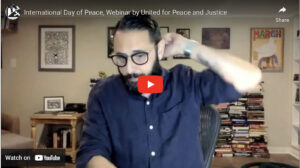While attention has been focused on the Trump administration’s dangerous nuclear confrontation with North Korea, another Trump action is adding fuel to a spreading conflagration on the other side of the world, in the Middle East. In October, President Trump refused to certify that Iran’s performance under the agreement limiting its nuclear programs was sufficient to meet U.S. national security requirements. He did so despite the fact that the International Atomic Energy Agency, charged with monitoring Iran’s adherence to the Joint Comprehensive Plan of Action (JCPOA) has found no evidence of non-compliance by Iran. The other five parties to the deal, France, Germany, the United Kingdom, Russia, and China all support its continued implementation.
Trump’s decision not to certify was made under the terms of U.S. legislation that is not part of the JCPOA itself. His action does not immediately terminate the deal, but rather starts a sixty day clock for Congress to take up legislation to re-impose sanctions on Iran. Re-imposition of sanctions would constitute a repudiation of the Iran deal by the United States. This would have unpredictable consequences, given that Iran remains in compliance with its obligations and all other parties to the agreement continue to support it. None of the other parties have expressed any willingness to renegotiate the deal. It is hard to see how U.S. rejection of the JCPOA could result in any more stringent limitation of Iran’s nuclear or missile programs in the absence of cooperation from the other parties to the agreement. And if the agreement were to collapse, the U.S. and the other JCPOA parties would lose the benefit of what IAEA Director General Yukiya Amano recently described as “the world’s most robust nuclear verification regime.”
UFPJ supports the following actions:
- Congress and President should reaffirm the country’s support for the Iran JCPOA. Absent non-compliance determined in a manner consistent with the agreement, the U.S. government should continue to implement the JCPOA and should cease attempts to undermine it.
- Congress should rescind the 2001 Authorization for Use of Military Force. There should be no further use of force or assistance to warring parties in the Middle East without national debate and new Congressional authorization. • All arms transfers by any party to the region should end.
- The United States should participate with all parties in the region in negotiations to bring about an end to its ongoing military conflicts.
- The United States should reaffirm its commitment to the United Nations Charter prohibitions on interference with the internal affairs of other states and on the use of force to resolve international disputes.
While there are few realistically foreseeable benefits from U.S. repudiation of the deal, the risks to peace are clear. Trump’s decision to destabilize the Iran nuclear agreement comes at a critical time for the Middle East, a region poised on the cusp of a variety of possible wider wars. With the campaigns to take back ISIS-held territory in Syria and Iraq nearing completion, a proxy war of position between Saudi Arabia, the United Arab Emirates and Israel, backed by the United States, and Iran and its regional allies, supported by Russia, threatens to escalate into a more direct conflict. Both Russia and the United States have significant forces in the region, already operating in close proximity to one another. At minimum, Trump’s action impedes diplomatic resolution of the complex conflicts in the region. But Trump’s remarks explaining his decision also manifest an intention to return to a policy towards Iran explicitly aimed at regime change, threatening to embark the United States once again on a path towards large-scale war in the Middle East with no clear end in view.
Trump’s refusal to certify that the Iran agreement meets U.S. national security requirements, less than two years after the deal took effect and less than one year into his first term also erodes the credibility of U.S. diplomatic efforts aimed at controlling nuclear weapons and other strategic arms. It calls into question whether U.S. arms control agreements, which by their nature must be relatively long-term, can be relied on when U.S. administrations change. In this regard Trump’s action further undermines prospects for diplomacy not only by the United States but by others seeking resolution to the dangerous confrontation between the United States and North Korea. Like many of Trump’s actions, his decision to upend the Iran nuclear agreement is difficult to reconcile with any coherent foreign policy vision. Contrary to his campaign rhetoric about avoiding entanglements abroad, it threatens to draw the United States even more deeply into conflicts in the Middle East while jeopardizing any peaceful resolution to the nuclear weapons crisis in Northeast Asia.



